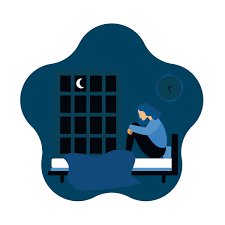Cracking the Code: Insomnia and Its Impact on Sleep Patterns
Struggling with sleepless nights? Discover the causes, impacts, and solutions for insomnia in this insightful guide. Explore strategies like CBT-I, sleep hygiene, and medications like zopiclone 7.5 mg to reclaim restful sleep.

Sleep—a simple yet essential function—is often elusive for millions around the globe. Insomnia, one of the most prevalent sleep disorders, goes beyond the occasional sleepless night. It’s a chronic issue that disrupts the natural rhythm of sleep, leaving people grappling with fatigue, irritability, and a host of health challenges. Understanding insomnia’s impact on sleep patterns is the first step toward finding relief and reclaiming restful nights. In this article, we’ll delve into the causes, consequences, and solutions for insomnia, unraveling its complexities and exploring ways to restore harmony to our sleep cycles.
The Nature of Insomnia
Insomnia is not merely about difficulty falling asleep; it encompasses a spectrum of sleep disturbances. People with insomnia may struggle to stay asleep, wake up too early, or feel unrefreshed despite adequate sleep duration. The condition can be classified into two types:
-
Acute Insomnia: A short-term problem often triggered by stress, anxiety, or significant life events. It usually resolves once the underlying issue is addressed.
-
Chronic Insomnia: A long-term condition that persists for at least three nights a week over three months. Chronic insomnia can stem from underlying medical conditions, psychological issues, or poor sleep habits.
Both types of insomnia disrupt the body’s natural sleep patterns, which include four distinct stages:
-
Non-REM Stage 1: The lightest sleep stage where the body begins to relax.
-
Non-REM Stage 2: A deeper stage of sleep where heart rate and breathing stabilize.
-
Non-REM Stage 3: Known as deep sleep, this stage is crucial for physical restoration.
-
REM Sleep: The stage where dreaming occurs, playing a vital role in memory consolidation and emotional regulation.
Insomnia disrupts these cycles, particularly reducing deep sleep and REM sleep, leaving individuals feeling drained and mentally foggy.
The Consequences of Insomnia
The impact of insomnia extends far beyond feeling tired. It can affect nearly every aspect of life:
-
Physical Health: Chronic sleep deprivation is linked to weakened immunity, increased risk of heart disease, high blood pressure, and diabetes.
-
Mental Health: Insomnia exacerbates conditions like anxiety and depression, creating a vicious cycle of stress and sleeplessness.
-
Cognitive Function: Lack of quality sleep impairs concentration, memory, and decision-making abilities.
-
Quality of Life: Insomnia reduces productivity, strains relationships, and diminishes overall well-being.
Moreover, insomnia’s effects are cumulative. Even a few nights of poor sleep can snowball into more severe health challenges if not addressed promptly.
Cracking the Code: Causes of Insomnia
Understanding what triggers insomnia is key to overcoming it. Some common culprits include:
-
Stress and Anxiety: Overthinking and worrying can keep the brain in overdrive, making it difficult to wind down.
-
Poor Sleep Hygiene: Irregular sleep schedules, excessive screen time, and caffeine intake disrupt the body’s internal clock.
-
Medical Conditions: Chronic pain, asthma, and gastrointestinal issues often interfere with sleep.
-
Medications: Some drugs for hypertension, asthma, or depression can have side effects that disrupt sleep.
-
Substance Use: Alcohol and nicotine are known to interfere with sleep quality, despite their temporary calming effects.
Solutions: Breaking Free from Insomnia
Overcoming insomnia involves a combination of lifestyle adjustments, professional interventions, and sometimes medication. Here are some proven strategies:
1. Sleep Hygiene Practices
Improving sleep habits can make a world of difference:
-
Stick to a consistent sleep schedule, even on weekends.
-
Create a bedtime ritual to signal your body it’s time to relax.
-
Optimize your sleep environment by keeping it dark, quiet, and cool.
-
Avoid heavy meals, caffeine, and alcohol close to bedtime.
2. Cognitive Behavioral Therapy for Insomnia (CBT-I)
CBT-I is a structured, evidence-based approach that helps identify and change thoughts and behaviors contributing to insomnia. This therapy is often more effective than medication for long-term management.
3. Medications and Sleep Aids
For severe cases of insomnia, medications can offer relief. Options range from over-the-counter remedies to prescription drugs like sleeping tablets or specific insomnia medications. One widely discussed option is zopiclone 7.5 mg, which helps individuals fall asleep faster and stay asleep longer. However, medications should be used under a doctor’s guidance to prevent dependency and side effects.
4. Relaxation Techniques
Practices like meditation, deep breathing, and progressive muscle relaxation can calm the mind and prepare the body for sleep. Regular exercise during the day also promotes better rest at night.
The Road to Restful Nights
Recovering from insomnia requires patience and persistence. It’s a journey of trial and error to discover what works best for your unique needs. Whether it’s through therapy, lifestyle changes, or carefully managed medication, the goal is to restore your body’s natural sleep rhythm.
In conclusion, insomnia is not an insurmountable challenge. By understanding its impact on sleep patterns and embracing proactive measures, you can unlock the secrets to better sleep. Restful nights pave the way for energized days, ensuring a healthier and happier life. If you’re struggling with chronic insomnia, consider consulting a healthcare professional to explore the most suitable treatment options and start your journey toward peaceful slumber.
What's Your Reaction?
















